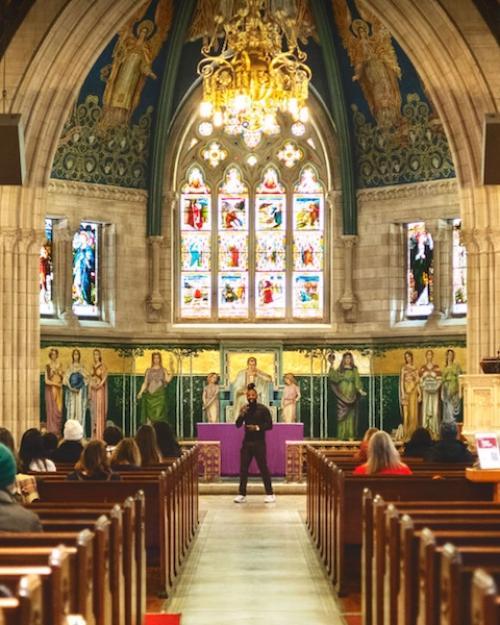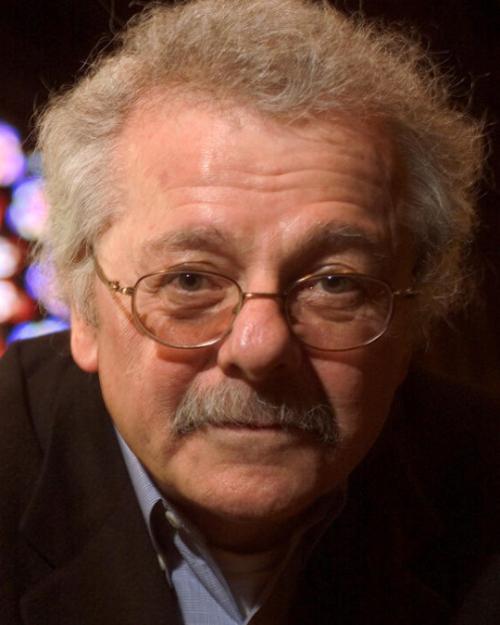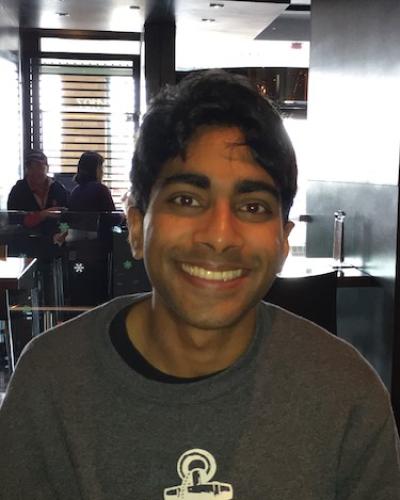Every year, Cornell sends off a group of academically and personally motivated leaders to pursue their passions in a diverse array of fields from government to medicine to fashion. Whether they are in Ithaca or thousands of miles away, as the saying goes: once a Cornellian, always a Cornellian. This spotlight series offers a glimpse into the lives of alumni from Cornell’s American Studies Program. Our latest feature is class of 2019 Nathan Reddy. In addition to majoring in American Studies, Reddy minored in Asian American Studies and Public Service Studies. He was South Asian Council member, Cornell Daily Sun opinion writer, and Public Service Studies scholar under the guidance of Amy Somchanhmavong.
1. What was your favorite course in the program?
My favorite course in the program was AMST 4130: Service Learning for Democratic Citizenship: Literature of American Social Action Movements, taught by Darlene Evans. I thoroughly enjoyed this course because it was during a time when I was developing my own consciousness about the power human beings held when they came together for a cause, and studying examples of when people came together for a cause in an American context was incredibly heartening and helped me define to myself what it means to be part of the American tradition of upending social injustice. My favorite part of this course was when we could research a social action movement on our own, and I chose the Asian American Movement. I had never heard of the Asian American Movement before I actively looked for examples of Asian Americans leading social change, and that tragedy was compounded by the fact that I was Asian American. When I found out that there was a whole movement, I couldn't stop devouring literature on it. When I presented about the movement to the class, I pondered whether the radical energy invoked by the Asian American Movement in the '60s could be resumed in the current context. I ultimately answered the question for myself, and realized that as a beneficiary of the original Asian American Movement, it was my responsibility to continue its legacy and cultivate my own Asian American identity grounded in social justice. This class allowed me to undergo this transformation, and I will always be grateful for it.
2. What is your fondest memory of the program?
My fondest memory of the program is having the chance to work with Karen teenagers in the Ithaca area to construct a mural representing their community, which you can go see at the side of Shortstop Deli. The Karen are a persecuted ethnolinguistic group in Burma, and a sizable refugee community has been established in Ithaca over the last few decades. I have very fond memories of going to Northside Community Center every Friday for two years, memories that consist of brainstorming about ideas for the mural to finally painting it. You can read more about how I personally transformed through this experience here. This is an independent study paper I did that counted as credit for both my American Studies major and Asian American Studies minor, and it is a personal testament to the transformative power of combining academic and community engagement when it comes to both individual and social change.
3. How are you utilizing the skills you learned in the AMST program in your daily life?
Being an American Studies major has ignited within me a deep thirst for knowledge in service to the community and social change. Ever since learning about American social action movements, I have since expanded my interest to Third World liberation movements across the globe, especially the Indian Independence Movement. I also read Paulo Freire's Education for Critical Consciousness for Darlene's class, a Brazilian intellectual and pedagogue who is frequently described as the most influential educator of the twentieth century, and have since read all of his books. I continue to grapple with his message about undermining power relations when one works towards social change. This is especially important since I am studying to be a youth worker, and it's my responsibility to not impose my own ideas on the youth I work with, but allow the youth to take the lead in enacting social change that is meaningful to them, not me. Essentially, being an American Studies major has established internal processes within me that are sure to be lifelong, and I don't think these processes would have ever started if I did not pursue this major.
4. Are you currently at a place you envisioned yourself being in while in college?
Ever since graduating from Cornell, I have tread many different paths. After multiple attempts to work within classroom settings, I have recently learned to learn from past experiences. I am shifting towards working with youth in out-of-classroom settings, which is what I did when I worked with the Karen teenagers when I was at Cornell. I have switched from getting a degree in elementary education to getting a degree in educational psychology at the University of Virginia. Along with taking courses that focus on the social and psychological factors of youth development, I will have to work with a local agency serving youth. For me, that will be a grassroots refugee resettlement organization in Charlottesville called International Neighbors where I will start helping youth with their schoolwork, and then will explore with the staff and the youth themselves what other things might be possible. Even though I have not had a steady path after graduating, I have retained the same passion for social change that being an American Studies major at Cornell allowed me to cultivate, and it feels good to know that that will stay the same regardless of what setting I am working within to change things for the better.
5. What's one piece of advice you have for current Cornellians?
Mentorship, mentorship, mentorship. None of the thoughts that I record on this profile would be possible without the one-on-one critical reflection sessions I did with Amy Somchanhmavong. If you are interested in working towards social change, it is so important to seek out a mentor who has had ample experience in the area you are interested in. Once you have a mentor, make sure you respect them by committing to the relationship. They are offering their time to help you along your journey, and it is important to keep that in mind.





